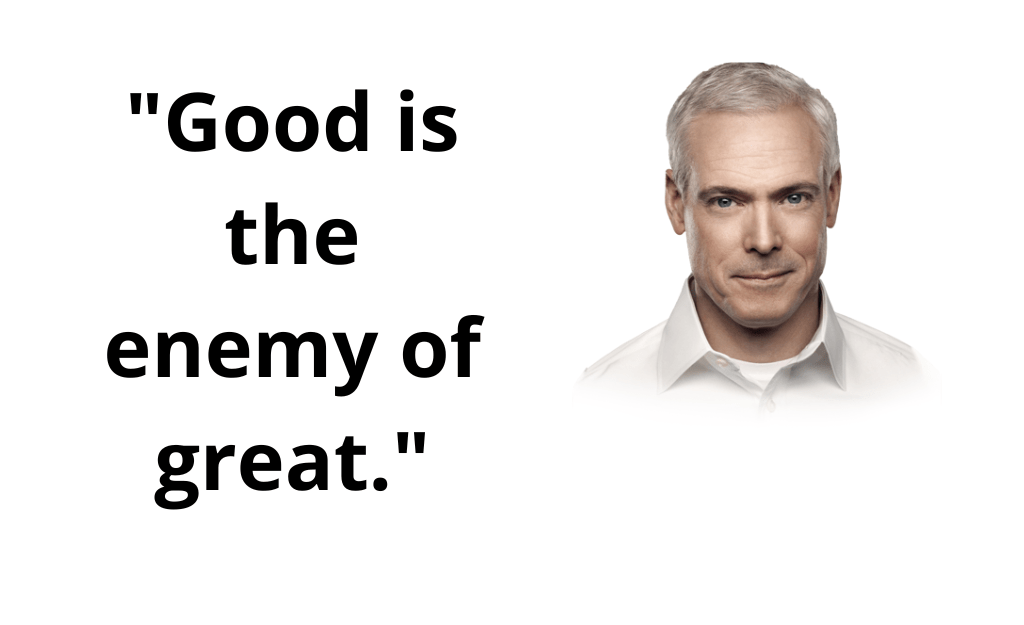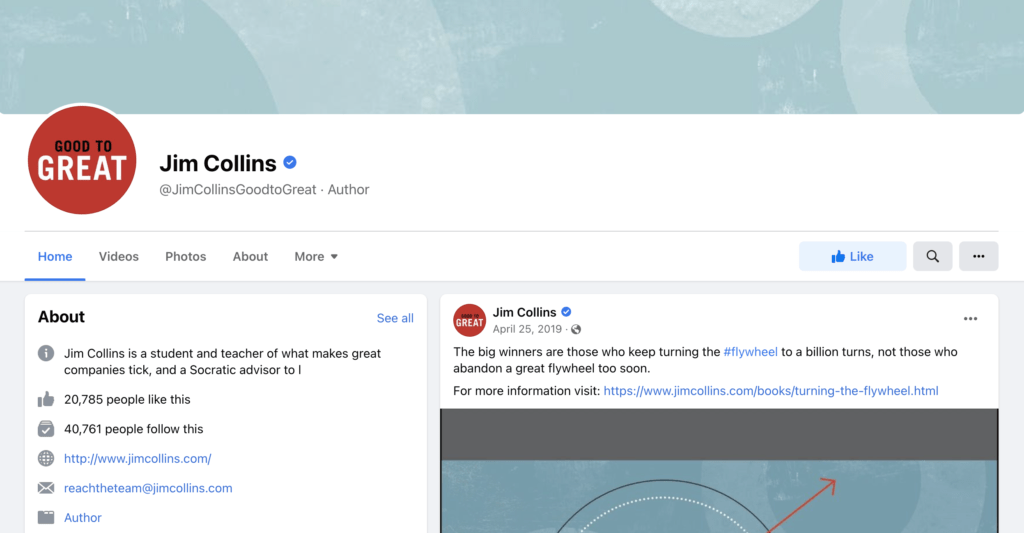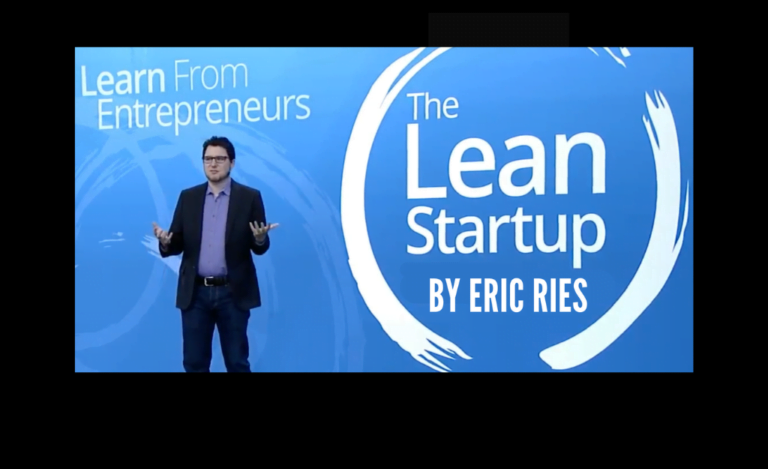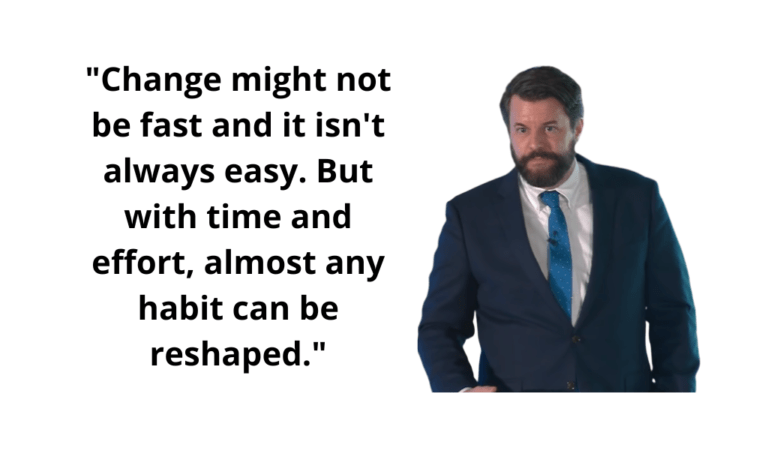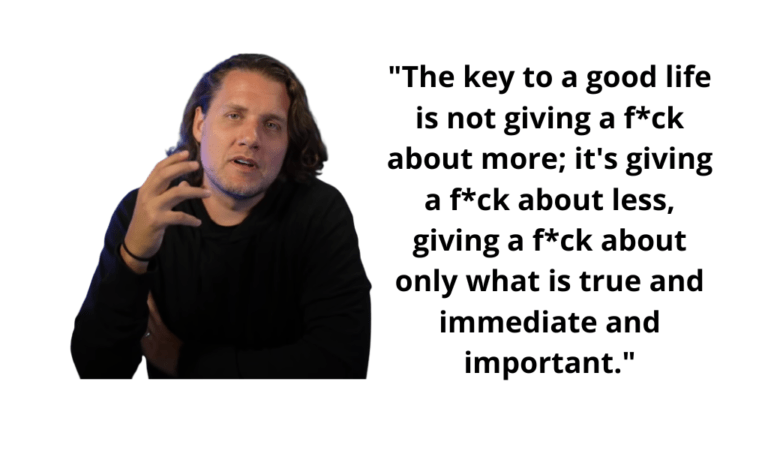Disclaimer: This post may contain affiliate links. For more information, please visit our Disclaimer Page.
An In-Depth Look into His Life and Legacy
Introduction to Jim Collins Biography
Jim Collins biography shows how hard effort, perseverance, and a growth attitude can succeed. From his humble beginnings in Boulder, Colorado, to his revolutionary work as a researcher, author, and consultant, He has made an unmistakable impression on the globe.
Collins has always promoted excellence, creativity, and discipline. His books and studies have illuminated what creates great firms and leaders, and his ideas have helped countless individuals and organizations reach their full potential. Jim Collins’ biography is a must-read for entrepreneurs, executives, and everyone who wants to learn more about success.
This blog article will examine Jim Collins’ early life, important ideas, and impact on business and beyond. His story will teach us about development mindset, disciplined action, and the human spirit’s boundless potential.
Join us on this intriguing tour through Jim Collins’ life and work and discover why he is one of our time’s most influential philosophers. Jim Collins’ biography has something for everyone, whether you’re a business pro or just curious about success. Let’s study this exceptional person’s story.
Early Life
James Charles Collins was born on the 25th of January, 1958, in Aurora, Colorado.
He was the only white student at his elementary school in San Francisco, where he had to adapt to new cultural norms for ten years, which took courage.
Jim Collins, whose grandfather died in an aviation disaster, is an expert rock climber like his father and grandfather. Despite his remarkable abilities, Jim is modest, wondering if he will pass the American trials.
Collins and his mother moved to Boulder after his parents divorced, marking a turning point in his life as he craved independence.
Education
He continued climbing rocks while in school and claimed that Yosemite was where he received his “true education.” Jim Collins could not picture living among the others he was surrounded by in the school’s computer lab.

He decided to attend Stanford University to study mathematical sciences in 1976 under the direction of Professor Porras. According to Professor Porras, Jim Collins’ rock-climbing background is unique, demonstrating how he dares to take risks and make tough decisions.
Career
Early career
After graduating, James worked as a consultant for McKinsey & Company for approximately 18 months after earning his MBA (Master in Business Administration). He subsequently moved on to work as a product manager for Hewlett-Packard.
Then, one day at random, Joanne told James that she thought she might win the Ironman Triathlon, and without giving it a second thought, he quit his job at Hewlett-Packard to train her and handle other chores like arranging for sponsorships from brands like Nike and Budweiser.

With her husband’s unwavering backing, Joanne only needed to prevail at the Hawaiian Ironman Triathlon in 1985.
Nonetheless, soon after the Triathlon was finished, James started working again, but this time as a researcher and instructor at Stanford University’s Graduate School of Management.
In 1989 Collins started his research and teaching career at the Stanford Graduate School of Business. He was awarded the Distinguished Teaching Award in 1992 and was motivated by an insatiable curiosity. He established a management laboratory in Boulder, Colorado, in 1995 and worked with senior leadership teams, CEOs, and researchers there.
Breakthrough success
In the meantime, in 1994, he began his writing journey that culminated in creating his most recognized works, as we will see below.
He established a management laboratory in Boulder, Colorado 1995, intending to conduct research and instruct executives from the business and nonprofit sectors.
Collins also had the good fortune to work as a Senior Executive for CNN International at that time, as well as for numerous other nonprofits in the social sector, including the Girl Scouts of the USA, the Leadership Network of Churches, the American Association of K-12 School Superintendents, and the United States Marine Corps.
In other words, he acted more as a teacher to these Senior Executives and CEOs from countless organizations.
Published works
Jim Collins is a leader in the business and social sectors and a student and teacher of what makes excellent companies function.
After investing more than 25 years in his study and writing, he created and coauthored six best-selling novels, some of which have been translated into 25–32 different languages and have sold more than ten million copies worldwide.
They include the perennial classic “Built to Last,” which explores why some businesses remain visionary for generations; the #1 bestseller “Good to Great,” which explores why some companies make the leap and others don’t, “How the Mighty Fall,” which explores how once-great businesses can self-destruct, and “Great by Choice”, which reveals the leadership behaviors for thriving in chaos and uncertainty. Jim has also written two monographs, “Turning the Flywheel” and “Good to Great and the Social Sectors,” that expand on his principal works concepts.
Influences
Jim Collins’ “Beyond Entrepreneurship,” which details business owners’ difficulties as their enterprises expand, was written in collaboration with William C. Lazier, Collins’ mentor. Lazier developed and managed multiple firms throughout his career and was a successful investor. An accomplished instructor and mentor, he relished guiding budding corporate leaders toward their goals.
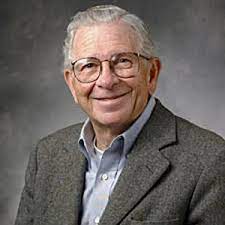
Collins claims that Lazier had a significant impact on his way of thinking and his approach to leadership. To him, Lazier was a “smart instructor” who prompted in-depth consideration of organizations’ problems and inspired an unyielding pursuit of greatness.
Peter Drucker, Benjamin Graham, and John W. Gardner are just a few of the people Jim Collins has named as having significantly impacted his work and way of thinking. Some historical individuals who have influenced him include Admiral James Stockdale and Winston Churchill.
Recent projects
His most recent book was published in 2020, BE 2.0 (Beyond Entrepreneurship 2.0), is an ambitious update of his first book; it honors his mentor and coauthor Bill Lazier and brings Jim back to his original focus on small, entrepreneurial businesses.
Awards and Recognition
The distinguished Jim, a holder of an MBA and a Bachelor’s degree in Mathematical Sciences from the prestigious Stanford University, was honored to hold the revered Class of 1951 Chair for the Study of Leadership position at the renowned United States Military Academy at West Point. This esteemed role was held by him for a period of two years, from 2012 to 2013.
Adding to his impressive academic achievements, Jim was also granted honorary doctorates from the reputable Peter F. Drucker Graduate School of Management at Claremont Graduate University and the University of Colorado. These prestigious honors are a testament to Jim’s remarkable accomplishments and contributions to the field.
Personal Life
Private Life
He had met and begun dating his lady love Joanne while he was at Stanford, and he happened to get engaged and then married later that year.
They live in their 2,500 Sq Ft Craftsman-style house in California and have no children.
Hobbies and Interests
In his spare time, Collins still enjoys rock climbing, which he has done for over forty years. He has already climbed the north face of the Half Dome and the south face of El Capitan in Yosemite Valley
Conclusion
Finally, Jim Collins is a great person with an incredible biography. His drive for learning, progress, and brilliance has made him a business and management legend. Collins’ story shows the power of hard effort and determination. He showed us that we can achieve great things and change the world with the correct mindset and approach.
Collins transformed leadership, management, and success. His books and studies have illuminated what creates great firms and leaders. Collins’ ideas and ideals have helped many people and organizations succeed.
Jim Collins’ dedication to lifelong learning may be his most admirable trait. Collins is humble and hungry for education despite his many accomplishments. His example reminds us that we can always improve, no matter what we accomplish.
Jim Collins’ story shows the strength of the human spirit. His biography inspires those who want to succeed, and his work has impacted business and beyond. So let’s take a page from Jim Collins’ book and aspire to be the finest versions of ourselves, always pushing the limits and positively affecting the world.
Social Networks
Website

Books
- 1992 – Beyond Entrepreneurship: Turning Your Business into an Enduring Great Company by James C. Collins and William C. Lazier
- 1994 – Built to Last: Successful Habits of Visionary Companies by James C. Collins and Jerry I. Porras
- 2001 – Good to Great: Why Some Companies Make the Leap …, And Others Don’t by James C. Collins
- 2005 – Good to Great and the Social Sectors by James C. Collins
- 2009 – How the Mighty Fall: And Why Some Companies Never Give In by James C. Collins
- 2011 – Great By Choice by James C. Collins and Morten T. Hansen
- 2019 –Turning the Flywheel: A Monograph to Accompany Good to Great by James C. Collins
- 2020 – BE 2.0 (Beyond Entrepreneurship 2.0): Turning Your Business into an Enduring Great Company by James C. Collins and William C. Lazier
F.A.Q. about Jim Collins
What is Jim Collins’s full name?
Jim Collins stands for James Charles Collins. He is named after his grandfather, from whom he inherited his taste for climbing, and unfortunately died in an airplane crash.
Who is Jim Collins?
Jim Collins is an American author, consultant, and lecturer focusing on business management and organizational effectiveness. He was born on January 25, 1958, in Aurora, Colorado, and grew up in the city. Collins is best known for his book “Good to Great,” published in 2001, and has become a classic in the business world.
What is “Good to Great” about?
Jim Collin’s “Good to Great” examines why some organizations become great and others don’t. Research and interviews with successful company executives informed the book. It lists numerous important differences between great and good companies.
What are some of Jim Collins’ biggest influences?
Jim Collins has cited several individuals as major influences on his work and thinking, including Peter Drucker, Benjamin Graham, and John W. Gardner. A number of historical figures, including Winston Churchill and Admiral James Stockdale, have also inspired him.
What are Jim Collins’ hobbies and interests?
Jim Collins enjoys hiking, skiing, and playing the guitar in his free time. He is also an avid reader and has a particular interest in ancient Greek philosophy.
Jim Collins Quotes
“Companies that change best over time know first and foremost what should not change.”
“Just because a company falls doesn’t invalidate what we can learn by studying that company when it was at its historical best.”
“Greatness is not a function of circumstance. Greatness, it turns out, is largely a matter of conscious choice, and discipline.”
“Creativity dies in an undisciplined environment.”
“By definition, it is not possible to everyone to be above the average.”
“A culture of discipline is not a principle of business; it is a principle of greatness.”
“Visionary companies pursue a cluster of objectives, of which making money is only one—and not necessarily the primary one.”
“The moment you feel the need to tightly manage someone, you’ve made a hiring mistake.”
“While you can buy your way to growth, you absolutely cannot buy your way to greatness.”
“Great vision without great people is irrelevant.”
“The purpose of bureaucracy is to compensate for incompetence and lack of discipline.”
“A company should limit its growth based on its ability to attract enough of the right people.”
“Bad decisions made with good intentions, are still bad decisions.”

